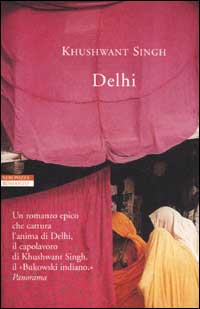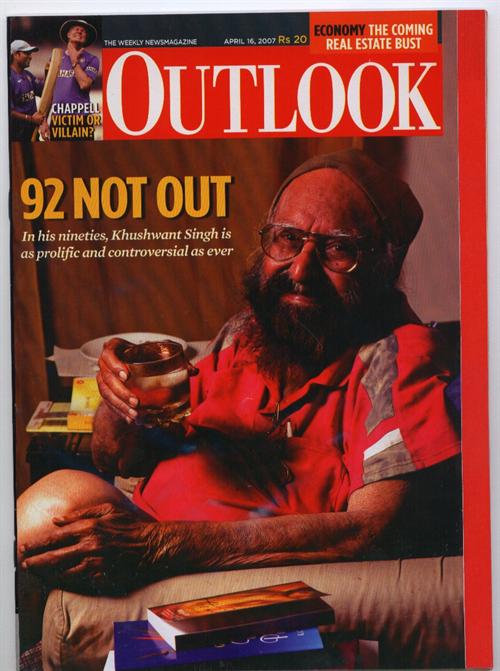Delhi
| ||||||||||||||||||||
|
Editeur - Casa editrice |
Neri Pozza |
|
||||||||||||||||||
|
Città - Town - Ville |
Vicenza | |||||||||||||||||||
|
Anno - Date de Parution |
2002 | |||||||||||||||||||
|
Pagine - Pages | 480 | |||||||||||||||||||
|
Lingua - language - langue | italiano | |||||||||||||||||||
|
Edizione - Collana |
Le tavole d'oro | |||||||||||||||||||
|
Ristampa - Réédition - Reprint |
Delhi | |||||||||||||||||||
|
Traduttore |
Vincenzo Mingiardi | |||||||||||||||||||
|
|
||||||||||||||||||||
|
|
|
"Ritorno a Delhi come torno da Bhagmati, la mia amante, quando mi stufo di andare a puttane in terre straniere": così comincia questo grande romanzo erotico, irriverente, poetico, epico che Khushwant Singh ha dedicato a Delhi.
Recensione in lingua italiana |
| Narratore dell'opera, una vera e propria saga che si estende per circa seicento anni, è un vecchio sporcaccione che ama Delhi come ama la sua hijda, la sua prostituta preferita, Bhagmati, metà uomo, metà donna con l'energia e la creatività di entrambi i sessi. Viaggiando attraverso il tempo, lo spazio e la storia per riscoprire la sua amata città, il narratore si imbatte in una miriade di personaggi che hanno fatto di Delhi il luogo mistico che essa è... Un viaggio epico in cui la città dell'Impero viene consegnata per sempre all'immortalità della letteratura. | ||||||||||||||||
| Biografia | ||||||||||||||||||||
|
Khushwant Singh è nato nel 1915 a Badali, nel Punjab. Dopo aver studiato al Government College di Lahore e al King's College di Londra, ha lavorato a lungo presso l'Alta Corte di Lahore. Scrittore tra i più famosi e venduti in India, Singh ha pubblicato numerose opere, tra le quali una monumentale Storia dei Sikh e i romanzi Train to Pakistan, La compagnia delle donne, Delhi. | ||||||||||||||||||||
| ||||||||||||||||||||




 Delhi
Delhi
